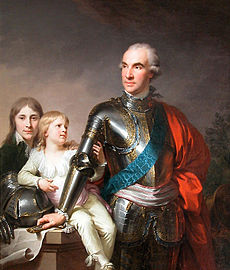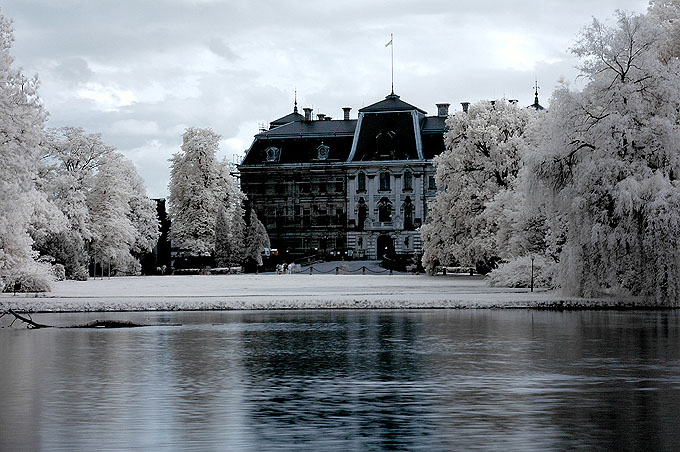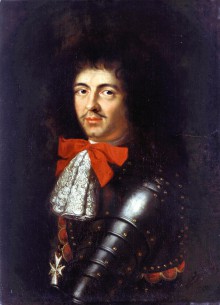This thread is about Polish heroes and Polish traitors.
Who are heroes? Guys who fought for the Polish cause.
Who are traitors? Guys who betrayed the Polish cause.
How simple.
However, some guys are really controvercial. Half-traitors, half heroes.
Who shall go first?
In my opinion, the traitors of Targowica Confederacy in 18 century.
The Targowica Confederation was a confederation established by Polish and Lithuanian magnates on 27 April 1792, in Saint Petersburg, with the backing of the Russian Empress Catherine II. The confederation opposed the Polish Constitution of May 3, 1791, which had been adopted by the Great Sejm, especially the provisions limiting the privileges of the nobility. The text of founding act of the confederation was written by the Russian general Vasili Stepanovich Popov. Four days later two Russian armies invaded the Polish-Lithuanian Commonwealth without a formal declaration of war.
The forces of the Targowica Confederation defeated the forces loyal to the Polish-Lithuanian Commonwealth, the Sejm and King Stanisław August Poniatowski in the Polish-Russian War of 1792. Their victory precipitated the Second Partition of Poland and set the stage for the Third Partition and the final dissolution of the Commonwealth in 1795.
The nickname "targowiczanin", describing the supporter of this confederation, became a negative political epithet in Poland, akin to "foolish traitor", still used up to the modern day[/i]
What happened to Targowica noble members?
Some were hanged be revolted masses:
Szymon Marcin Kossakowski- A supporter of the Russian Empire during the Kościuszko Uprising and earlier, he was deemed a traitor. In the aftermath of the Wilno Uprising he tried to escape by boat, but was captured and hanged in the town hall square of Vilnius with the inscription of He who swings will not drown and was interred in the cellars of the church in Jonava.
en.wikipedia.org/wiki/Szymon_Kossakowski
Some escaped and were hanged in effigy:
Count Stanisław Szczęsny Potocki-Marshal of the Confederation. Sentenced to death, but never apprehended. Instead, on September 29, 1794, his portrait was hanged. In 1795 he was rewarded by Catherine the Great with the Russian Order of Alexander Nevsky and the rank of general en chef.

en.wikipedia.org/wiki/Stanis%C5%82aw_Szcz%C4%99sny_Potocki
Two quotes from him: After the signing of the Targowica Confederation:"Each true Pole, not blinded by the Prussian and royalist cabal, is convinced, that our Fatherland can only be saved by Russia, otherwise our nation will be enslaved".
"About past Poland and Poles [I don't want to talk anymore]. Gone is this country, and this name, as many others have perished in the world's history. I am now a Russian forever."
Who are heroes? Guys who fought for the Polish cause.
Who are traitors? Guys who betrayed the Polish cause.
How simple.
However, some guys are really controvercial. Half-traitors, half heroes.
Who shall go first?
In my opinion, the traitors of Targowica Confederacy in 18 century.
The Targowica Confederation was a confederation established by Polish and Lithuanian magnates on 27 April 1792, in Saint Petersburg, with the backing of the Russian Empress Catherine II. The confederation opposed the Polish Constitution of May 3, 1791, which had been adopted by the Great Sejm, especially the provisions limiting the privileges of the nobility. The text of founding act of the confederation was written by the Russian general Vasili Stepanovich Popov. Four days later two Russian armies invaded the Polish-Lithuanian Commonwealth without a formal declaration of war.
The forces of the Targowica Confederation defeated the forces loyal to the Polish-Lithuanian Commonwealth, the Sejm and King Stanisław August Poniatowski in the Polish-Russian War of 1792. Their victory precipitated the Second Partition of Poland and set the stage for the Third Partition and the final dissolution of the Commonwealth in 1795.
The nickname "targowiczanin", describing the supporter of this confederation, became a negative political epithet in Poland, akin to "foolish traitor", still used up to the modern day[/i]
What happened to Targowica noble members?
Some were hanged be revolted masses:
Szymon Marcin Kossakowski- A supporter of the Russian Empire during the Kościuszko Uprising and earlier, he was deemed a traitor. In the aftermath of the Wilno Uprising he tried to escape by boat, but was captured and hanged in the town hall square of Vilnius with the inscription of He who swings will not drown and was interred in the cellars of the church in Jonava.
en.wikipedia.org/wiki/Szymon_Kossakowski
Some escaped and were hanged in effigy:
Count Stanisław Szczęsny Potocki-Marshal of the Confederation. Sentenced to death, but never apprehended. Instead, on September 29, 1794, his portrait was hanged. In 1795 he was rewarded by Catherine the Great with the Russian Order of Alexander Nevsky and the rank of general en chef.

en.wikipedia.org/wiki/Stanis%C5%82aw_Szcz%C4%99sny_Potocki
Two quotes from him: After the signing of the Targowica Confederation:"Each true Pole, not blinded by the Prussian and royalist cabal, is convinced, that our Fatherland can only be saved by Russia, otherwise our nation will be enslaved".
"About past Poland and Poles [I don't want to talk anymore]. Gone is this country, and this name, as many others have perished in the world's history. I am now a Russian forever."



